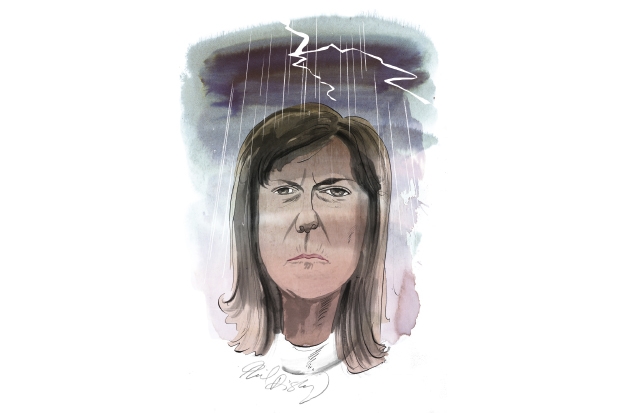It is safe to predict that when 20,000 world leaders, officials, green activists and hangers-on convene in Paris next week for the 21st United Nations climate conference, one person you will not see much quotedis Professor Judith Curry. This is a pity. Her record of peer-reviewed publication in the best climate-science journals is second to none, and in America she has become a public intellectual. But on this side of the Atlantic, apparently, she is too ‘challenging’. What is troubling about her pariah status is that her trenchant critique of the supposed consensus on global warming is not derived from warped ideology, let alone funding by fossil-fuel firms, but from solid data and analysis.
Some consider her a heretic. According to Professor Michael Mann of Pennsylvania State University, a vociferous advocate of extreme measures to prevent a climatic Armageddon, she is ‘anti-science’. Curry isn’t fazed by the slur.
‘It’s unfortunate, but he calls anyone who doesn’t agree with him a denier,’ she tells me. ‘Inside the climate community there are a lot of people who don’t like what I’m doing. On the other hand, there is also a large, silent group who do like it. But the debate has become hard — especially in the US, because it’s become so polarised.’ Warming alarmists are fond of proclaiming how 97 per cent of scientists agree that the world is getting hotter, and human beings are to blame. They like to reduce the uncertainties of climate science and climate projections to Manichean simplicity. They have managed to eliminate doubt from what should be a nuanced debate about what to do.
Professor Curry, based at the Georgia Institute of Technology in Atlanta, does not dispute for a moment that human-generated carbon dioxide warms the planet.








Comments
Join the debate for just £1 a month
Be part of the conversation with other Spectator readers by getting your first three months for £3.
UNLOCK ACCESS Just £1 a monthAlready a subscriber? Log in